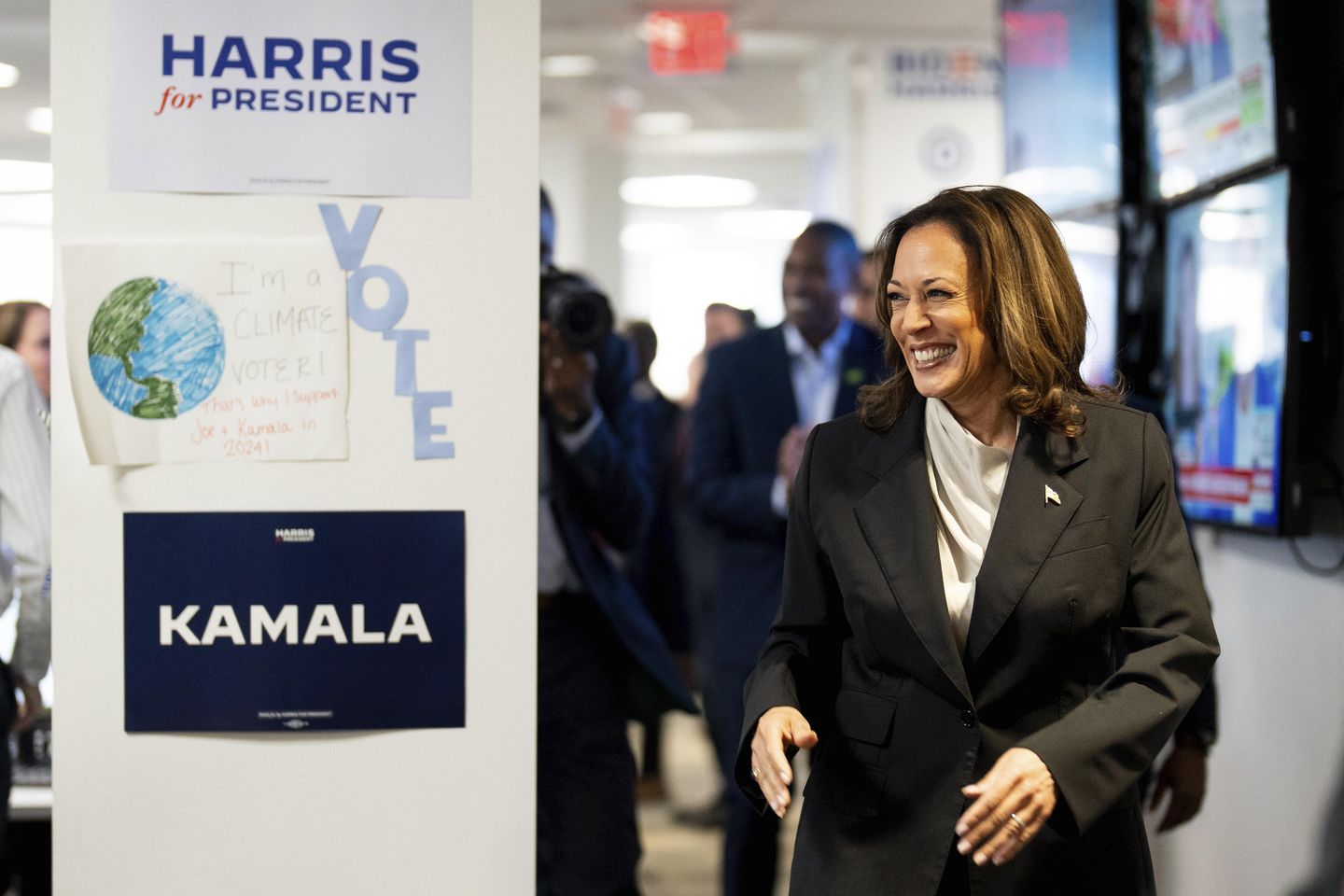In a stunning turn of events, Vice President Kamala Harris has emerged as the frontrunner for the Democratic Party’s nomination in the upcoming 2024 presidential election. Following President Joe Biden’s shocking announcement that he will not seek re-election, Harris has quickly garnered the support of enough Democratic delegates to solidify her position as the party’s nominee.
The news of Harris securing the necessary support came as a surprise to many political analysts and pundits, who had expected a more competitive primary race in the wake of Biden’s decision. However, Harris’s swift rise to the top of the Democratic field can be attributed to a combination of factors, including her experience as Vice President, her strong relationships within the party, and her ability to energize the Democratic base.
One of the key factors in Harris’s success has been the support of top Democrats who have rallied behind her in the aftermath of Biden’s announcement. Prominent party leaders, including former President Barack Obama and House Speaker Nancy Pelosi, have publicly endorsed Harris and encouraged other Democrats to unite behind her candidacy.
Additionally, Harris’s campaign has been buoyed by a groundswell of grassroots support from Democratic voters across the country. Her message of unity, progress, and inclusivity has resonated with a wide range of voters, from young progressives to older moderates, making her a formidable contender in the general election.
Harris’s path to the nomination has not been without challenges, however. Throughout the primary campaign, she faced tough competition from other Democratic candidates, including Senators Elizabeth Warren and Cory Booker, as well as former South Bend Mayor Pete Buttigieg. But with Biden’s exit from the race, Harris has emerged as the clear frontrunner and is now focused on building a coalition that can defeat Republican incumbent Donald Trump in the general election.
As the Democratic Party coalesces around Harris’s candidacy, she has already begun to outline her vision for the country and differentiate herself from Trump’s policies. Harris has emphasized the need for bold action on issues such as climate change, healthcare, and racial justice, positioning herself as a champion for progressive values and a sharp contrast to the Trump administration.
In a recent speech to a crowd of supporters in Detroit, Harris laid out her vision for America’s future, promising to fight for working families, protect the environment, and uphold the values of democracy and equality. She also took aim at Trump, accusing him of dividing the country and undermining its institutions, while pledging to restore unity and integrity to the White House.
Harris’s campaign has also been bolstered by a series of high-profile endorsements from celebrities, activists, and political leaders. Musicians like Beyoncé and Jay-Z have publicly endorsed Harris, as have actors like George Clooney and Meryl Streep. Progressive icons like Alexandria Ocasio-Cortez and Bernie Sanders have also thrown their support behind Harris, citing her commitment to progressive values and her ability to unite the party.
Despite her strong position in the Democratic primary, Harris faces a tough road ahead in the general election. Trump, who is seeking re-election for a second term, remains a formidable opponent with a loyal base of supporters and a significant fundraising advantage. Harris will need to mount a robust campaign that can appeal to a broad cross-section of American voters and mobilize Democratic turnout in key swing states.
One of the key challenges for Harris will be to win over moderate and independent voters who may be skeptical of her progressive policies and political background. Harris, a former prosecutor and California Senator, has faced criticism from some quarters for her handling of criminal justice issues and her record on certain policy positions. However, Harris has sought to address these concerns by emphasizing her commitment to reform and her willingness to listen to diverse perspectives.
In order to compete effectively against Trump, Harris will need to build a coalition that can bridge the divide between progressive and moderate Democrats, as well as appeal to disaffected Republicans and independents. Her ability to unite a diverse coalition of supporters will be crucial in determining the outcome of the general election and securing a victory in November.
In the coming months, Harris’s campaign will focus on building momentum, expanding her outreach efforts, and honing her message to resonate with a broad cross-section of voters. With the support of the Democratic Party behind her, Harris is well-positioned to mount a formidable challenge to Trump and his Republican allies, and to lead the country in a new direction that reflects the values and aspirations of the American people.









